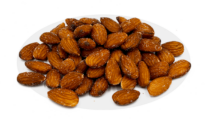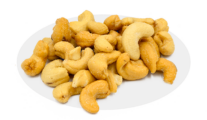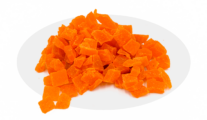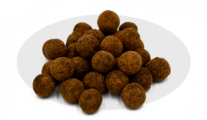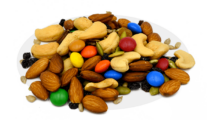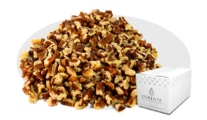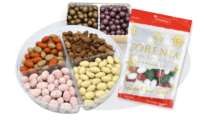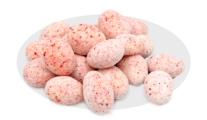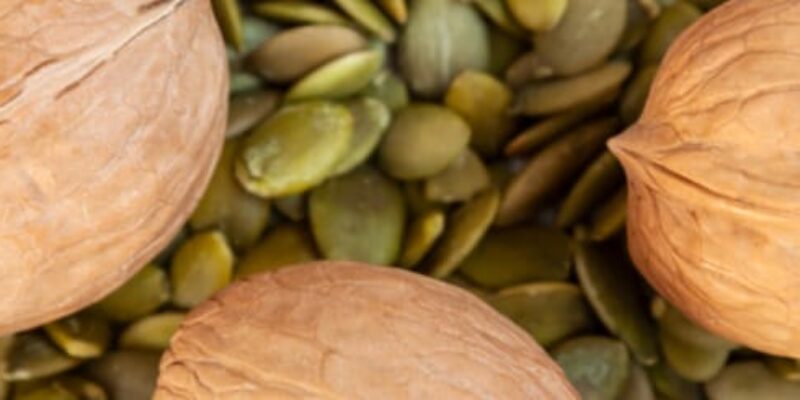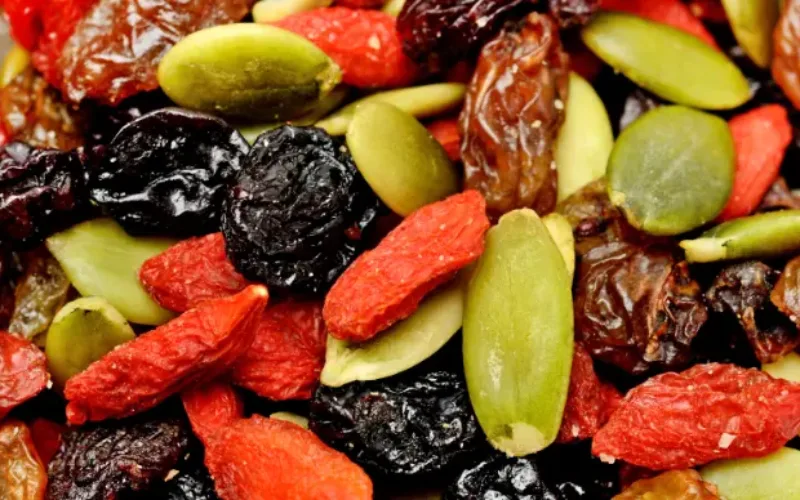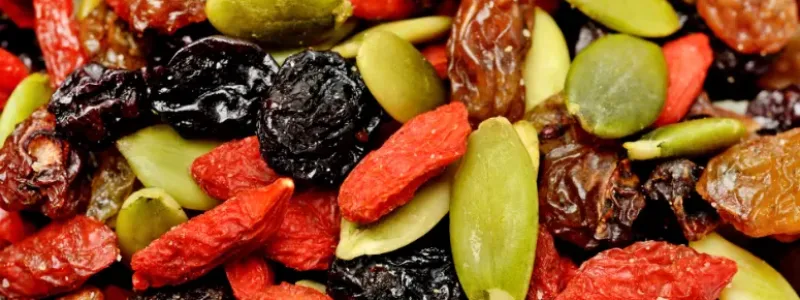Written By Sam Henselijn
Pumpkin Seeds vs. Walnuts Which is Better for You? Nutritionally speaking, a lot of nuts and seeds contain many of the same nutrients. In general, they’re all rich in protein, vitamins, healthy fats, and fiber. So how do two of the most popular nuts and seeds stack up against each other? Walnuts and pumpkin seeds are arguably the queens of the “healthy snack” world. But which one is better for you?
Pumpkin Seeds vs. Walnuts
We can easily compare the two when taking a closer look at their nutritional information. The tables below are for 100g of both walnuts and pumpkin seeds.
WALNUTS NUTRITION FACTS
Calories 654kcal
Carbohydrates 14g
Dietary Fiber 6.7g
Total Fat 65g
Saturated Fat 6.1g
Sodium 2mg
Protein 15g
Iron 2.9mg
Magnesium 158mg
Potassium 441mg
Copper 1.6mg
Manganese 3.4mg
Zinc 3.1mg
PUMPKIN SEEDS NUTRITION FACTS
Calories 446kcal
Carbohydrates 54g
Dietary Fiber 18g
Total Fat 19g
Saturated Fat 3.7g
Sodium 18mg
Protein 19g
Iron 3.3mg
Magnesium 262mg
Potassium 919mg
Copper 0.69mg
Manganese 0.5mg
Zinc 10mg
Health benefits of walnuts
Walnuts are amongst the healthiest nuts for human
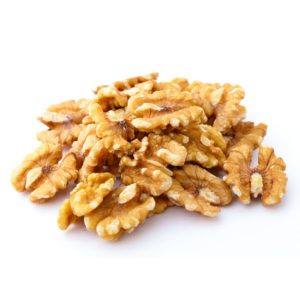
consumption. They contain omega-3 fatty acids, biotin, B vitamins, molybdenum, manganese, copper, protein, and monounsaturated fats.
Because of their high omega-3 fatty acid concentration, walnuts are particularly helpful for fighting several health conditions and diseases. That includes inflammation, such as arthritis, and other joint and inflammatory issues. Also heart disease and different cardiovascular issues, diabetes, and healthy brain functioning. A valuable tip for anyone interested in reaping these benefits is to consume walnuts raw and as fresh as possible. Omega-3 fatty acids are relatively unstable and can go rancid.
Vitamin B6
Walnuts are a good source of Vitamin B6, with a concentration more than 13 times that of pumpkin seeds! Vitamin B6 is a water-soluble vitamin imperative for processing amino acids in the body. It is connected to red blood cell metabolism, proper functioning of the immune and nervous systems, and several more bodily functions.
A deficiency in vitamin B6 can lead to several conditions, such as anemia, depression, and
skin inflammation. Recent studies also indicate that a diet low in vitamin B6 may increase the risk of heart disease.
Health benefits of pumpkin seeds
Pumpkin seeds contain a number of vitamins and minerals that
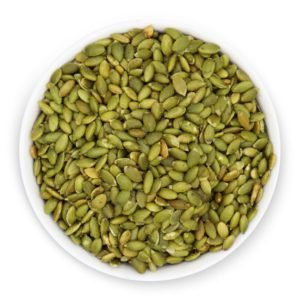
are essential to us. These include manganese, phosphorus, magnesium, copper, iron, healthy fats, protein, and fiber.
What’s more, pumpkin seeds have more zinc than any other nut or seed. In the body, zinc helps maintain immune function and wound healing. This essential mineral is needed for DNA synthesis, metabolism and growth. It may reduce inflammation and the risk of some diseases.
High antioxidant content
Pumpkin seeds are packed with antioxidants such as carotenoids and vitamin E. These substances protect cells from free radicals. The World Health Organization (WHO) even announced pumpkin seeds as the best food to eat to obtain zinc and magnesium. Antioxidants have anti-inflammatory effects, which is why they can protect the body and prevent many chronic diseases.
Pumpkin Seeds vs. Walnuts Which is Better for You?
Both of these offer incredible benefits to anyone looking for a healthier lifestyle, and diet. However, there are a few significant differences between pumpkin seeds and walnuts:
-Walnuts have more thiamin, riboflavin, niacin, pantothenic acid, and Vitamin B6.
-Walnuts have less sodium and a lower glycemic index compared to pumpkin seeds.
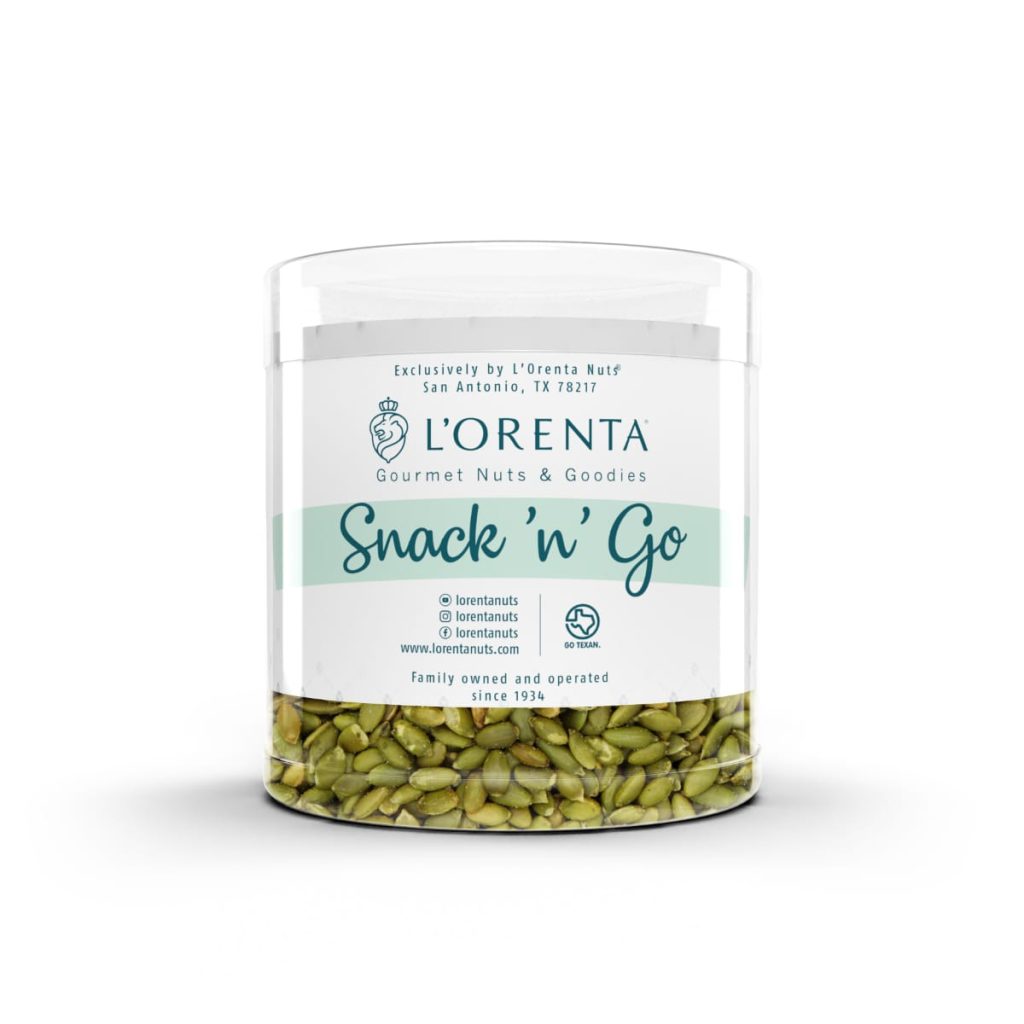
-Pumpkin seeds offer more zinc, fiber, magnesium, and potassium.
-Compared to walnuts, pumpkin seeds have less sugars and saturated fat.
-Although walnuts have more calories, pumpkin seeds are much heavier in carbs.
-Both are high in calcium, fiber, iron, potassium and protein.
-Walnut and pumpkin seeds are both high in protein. Still, pumpkin seeds have 22% more protein than walnuts.
Visit www.lorentanuts.com for all your nuts and goodies cravings!
FAQ: Pumpkin Seeds vs. Walnuts – Which is Better for You?
How do pumpkin seeds and walnuts compare nutritionally?
Both pumpkin seeds and walnuts are rich in protein, vitamins, healthy fats, and fiber. However, they have distinct nutritional profiles. For example, 100g / 3.5oz of walnuts contain more total fat and fewer carbohydrates than the same amount of pumpkin seeds, which have more dietary fiber and a higher protein content.
What are the health benefits of walnuts?
Walnuts are known for their high omega-3 fatty acid content, which is beneficial for combating inflammation, heart disease, diabetes, and supporting healthy brain function. They are also a good source of Vitamin B6, which is crucial for amino acid metabolism, immune system function, and the health of the nervous system.
Are pumpkin seeds good for you?
Pumpkin seeds are notable for their zinc content, which is higher than any other nut or seed. Zinc supports immune function, wound healing, DNA synthesis, and metabolism. Pumpkin seeds are also packed with antioxidants, such as carotenoids and vitamin E, which can protect against chronic diseases by reducing inflammation.
Which has more antioxidants: pumpkin seeds or walnuts?
Pumpkin seeds have a high antioxidant content, including carotenoids and vitamin E, which can protect cells from free radical damage. While walnuts also contain antioxidants, particularly omega-3 fatty acids, pumpkin seeds are specifically highlighted for their antioxidant properties by the World Health Organization (WHO).
Are there any significant differences between pumpkin seeds and walnuts in terms of vitamins and minerals?
Yes, there are significant differences. Walnuts have a higher concentration of thiamin, riboflavin, niacin, pantothenic acid, and Vitamin B6, while pumpkin seeds offer more zinc, fiber, magnesium, and potassium. Pumpkin seeds also have less sodium and a lower glycemic index compared to walnuts.
Which is better for weight management: pumpkin seeds or walnuts?
Both pumpkin seeds and walnuts can be beneficial for weight management due to their high protein and fiber content, which can help you feel full. However, walnuts contain more total fat, which may contribute to a higher calorie count per serving. The choice between including the two in your diet may depend on individual dietary goals and preferences.
Which should I choose for a healthier lifestyle: pumpkin seeds or walnuts?
Both pumpkin seeds and walnuts offer incredible health benefits and can be included in a balanced diet. Your choice may depend on specific health goals, such as increasing protein intake with pumpkin seeds or boosting omega-3 fatty acid consumption with walnuts. Including a variety of nuts and seeds in your diet is the best way to ensure you’re getting a wide range of nutrients.
Sam Henselijn Author’s Biography – Meet L’Orenta Nuts CEO
Copyright 2024 L’Orenta Nuts
L’Orenta Nuts proudly holds the SQF food safety certification, symbolizing our unwavering dedication to upholding the highest standards of food safety and quality. This certification guarantees that our products undergo rigorous scrutiny, ensuring transparency, traceability, and adherence to global food safety regulations for the utmost consumer confidence.
L’Orenta Nuts has the HACCP (Hazard Analysis and Critical Control Points) certification is a systematic approach to identifying, evaluating, and controlling food safety hazards. It ensures that food products are produced and handled in a manner that minimizes risks and complies with safety standards.
Our GMP (Good Manufacturing Practices) certification ensures that a manufacturing facility adheres to comprehensive quality and safety standards while producing pharmaceuticals, food, and other consumer goods, promoting consistency, quality, and compliance with regulatory requirements.
L’Orenta is an FDA-approved manufacturing facility and has met the rigorous standards set by the U.S. Food and Drug Administration. It demonstrates compliance with regulations, ensuring the production of safe and high-quality food products.


